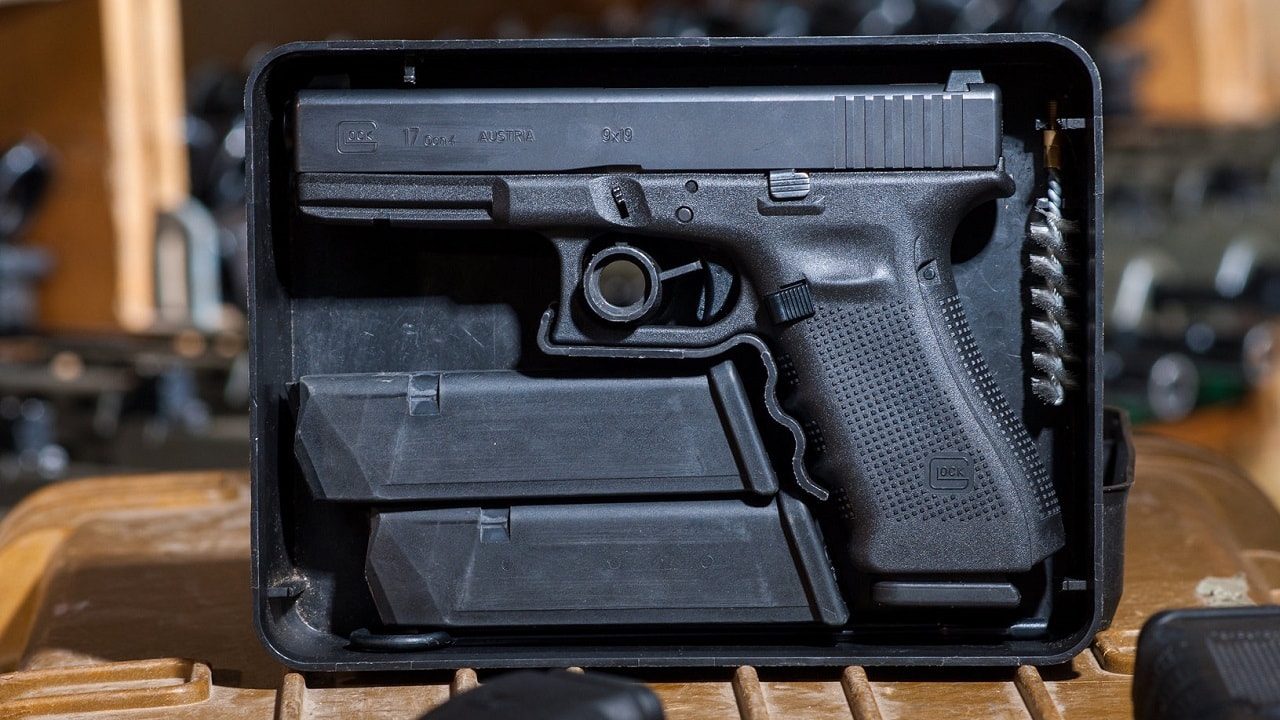How do you pick a top gun for home defense or just general self-defense? Here are at least a few basic ideas to consider in a firearm: Here in the United States, there are many issues that people love to debate. While politics tops the list today, there are certainly other issues that could divide the country and leave people flustered and downright hostile. Up there with the best city for pizza or whether baseball should have a designated hitter rule is the issue of “what makes a good home self-defense gun?”
For a large percentage of Americans, the answer will invariably be “you don’t need a gun at all.” There is always going to be a segment of the population that sees no reason for guns, making the argument “guns make you more dangerous” or just the bewildering “I don’t believe in guns” statement.
Getting past that, and addressing those actual supporters of the Second Amendment comes the issue of determining the needs for a self defense gun. While such a debate could be used for the basis of a book, there are a few quick points to consider.
Among those is the legality of even owning a firearm as well as how to properly purchase and register your firearm. Those in cities such as Chicago, New York and Washington, D.C. should simply go to the lock store instead – because the legality of firearm ownership is simply too great to overcome. For those who don’t like that fact should then simply move to a part of the country that is more supportive of the Second Amendment.
In other words, the first – and most important consideration for a good self-defense gun – comes down to what you may (or may not) be able to legally own. Committing a felony should never be part of the equation.
Home Defense
The next issue is what you consider “defending” and from what?
While this could bring up the debate of crime in our country, the fact is that today there are countless options for alarm systems, security cameras and other deterrents that opponents of guns would argue are better options. In most cases, there is no reason for a gun owner not to rely on those as well.
That is to say, a firearm should be the tool of last resort – something homeowners should depend on a firearm only when the alarm system, motion lights, security cameras or other deterrents have failed to do their respective jobs.
Then it comes down to training and being comfortable using the gun. While 2020 saw a massive increase in first-time gun ownership, even ardent supporters of the Second Amendment must question whether those newbies with guns know what they are doing. It doesn’t help the gun-rights cause to have inexperienced owners – who may be dangerous to themselves and others – out there.
What Type of Gun?
Getting past those issues, we’re left with determining whether a long gun (rifle or shotgun) or handgun is the best option. The latter, a pistol or revolver, would be something that could be a daily carry – legally of course. So that could be something that could fill a roll in personal and home defense.
There are issues to consider including caliber, size, and accessibility. What might seem like a good concealed carry handgun generally would be good in the home too. However, larger handguns that might not be as suited to everyday carry could also come in handy for home defense.
Some may suggest oversized magazines, laser sights or lights are a good idea, but when it comes down to handguns it should be what you are comfortable using. If you don’t generally shoot with a high capacity magazine and laser sights, there is little reason to use it in defense of the home. When relying on a handgun in defense of the home, the use of a handgun should be second nature. It shouldn’t be a time to accessorize.
Go Long
When it comes to long guns, the issue is to determine whether to go with a rifle or shotgun. Generally, a rifle used for hunting isn’t going to be as ideal in defending the home unless you plan to stand on the porch to fend off rustlers. Hallways are narrow and a long rifle will be hard to maneuver. A semi-automatic rifle, such as an AR- or AK-platform, is far more suitable in such situations and has the added benefit of “looking mean,” which could serve as a deterrent in itself.
Likewise, a shotgun can also provide a similar disincentive to a would-be burglar or other potential threat. The mere ratchet sound of a shotgun could be enough to send all but the most hardened intruder running for the nearest exit. The benefit of a shotgun over rifles and handguns is that it won’t have an over-penetration issue – meaning if you have to pull the trigger you don’t need to worry that bullets will go through multiple walls, potentially hitting a loved one or other innocent person.
Bottom Line
The most important point to remember regardless of what gun you choose for home defense is that you want to be able to make a stand and defend what is yours until law enforcement can arrive. That could be simply using the gun to get a drugged-out junkie to flee into the night or making the hard decision to take a life when someone charges at you. But a self-defense firearm isn’t about making a John Wick style pitched battle against a horde of gangsters.
Peter Suciu is a Michigan-based writer who has contributed to more than four dozen magazines, newspapers, and websites. He regularly writes about military small arms and is the author of several books on military headgear including A Gallery of Military Headdress, which is available on Amazon.com.

